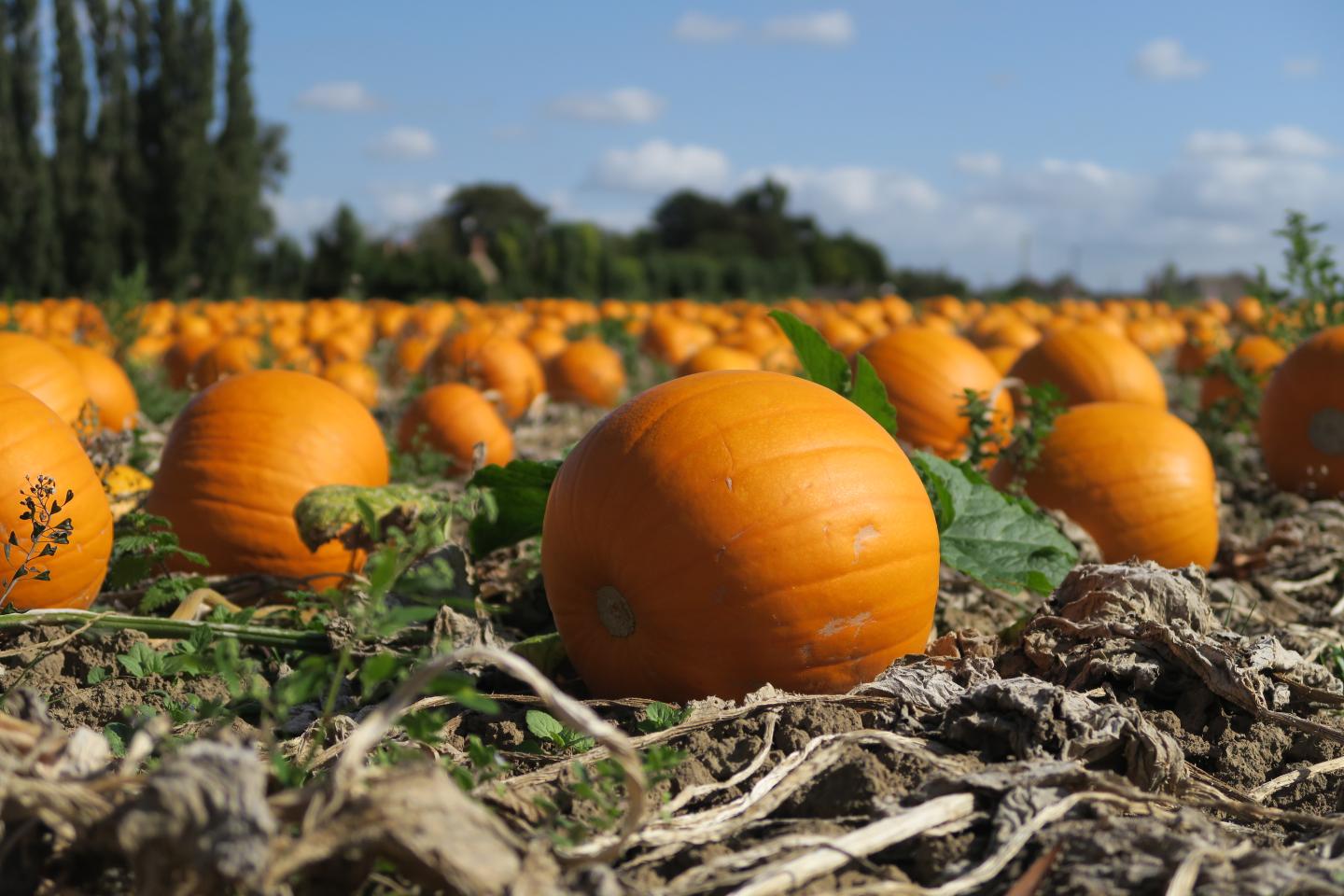
Thank you for continuing to subscribe to our monthly newsletter. We hope you continue to find the content useful and we welcome any feedback or suggestions on topics that you would like to see covered in future editions of the newsletter.
FAS technical advice line: 03000 200 301
- Key dates to be aware of…
- Book now: Farming Advice Service Webinar - Improving Water Resilience on Farm with Jerry Knox (Professor of Agricultural Water Management at Cranfield University)
- Animal Movement Rules - a Reminder
A short guide and useful links to help you understand your obligations around livestock movement. - Countryside Stewardship Mid Tier agreements extended to support sustainable farming and nature recovery
On 15 October, Defra confirmed that more than 5,000 farmers with Countryside Stewardship Mid Tier (CS MT) agreements set to expire this year will be offered a one-year extension to their current agreement. - Simplifying Payments with GOV.UK Pay
You can now pay Environment Agency permit application charges online with GOV.UK Pay. Read more here. - EA Case Study: SSAFO improvements at a large Lincolnshire beef unit
At a beef cattle enterprise in Lincolnshire, a routine farm inspection from the Environment Agency (EA) identified issues with the storage of the farm’s fuel oil, the cattle farmyard manure (FYM), and the silage, resulting in non-compliant with a number of silage, slurry and agricultural fuel oil (SSAFO) Regulations. The EA team explain how this was remedied. - Summer Water Abstraction Returns - Details on how to report your returns.
- Water Abstraction Alerts
Following this year’s exceptionally dry summer, the Environment Agency has utilised the Water Abstraction e-Alert (WAA) system, part of the Managing Water Abstraction Service (MWAS) on GOV.UK, to issue notices. - Have your say in reforming reservoir regulation
- Updates from the Defra Farming blog and industry announcements
Extreme weather guidance from the RPA
Farming Innovation Programme (FIP) competitions open now
Cattle TB vaccine trials move to the next stage
Over 8,800 applicants offered Farming Equipment and Technology Fund (FETF) funding
New video series: What to expect from an RPA visit
Making Tax Digital for Income Tax
RABI partnership offering farmers and growers free 2-year TIAH membership
£11m collected from water company fines invested into cleaning our water
AgriScale pilot to drive UK agri-tech manufacturing forward
New Defra podcast on Soil Health - How can FAS help you?
- Stay up to date with us
If you hold a summer water abstraction licence (authorising abstraction wholly within the months of April to October), the Environment Agency will make actual abstraction return forms available to you from 31 October. You then have 28 days to send your readings to the Environment Agency. GOV.UK
You can burn heather, rough grass, bracken, gorse or vaccinium on land other than in upland areas from this date.
The burning season for land in upland areas began on 1 October. GOV.UK
Farming Innovation Programme: Small R&D Partnership Projects Round 4 closes to new applications GOV.UK
This is the deadline date that farmers who have been short-listed to claim under the Farming Equipment and Technology Fund grant should respond to the RPA. The deadline is set out in the Grant Funding Agreement letter the RPA has recently issued to all successful applicants.
FAS Webinar - Improving Water Resilience in Agriculture; supporting farmers in England to reduce their vulnerability to future climate and water risks
4pm – 5pm Thursday 20th November
In case you missed them
New restrictions for burning on all upland peat deeper than 30cm come into force. From this date, anyone wishing to burn heather, grass and other vegetation on upland peat deeper than 30cm will require a license.
GOV.UK
For any land located in a Nitrate Vulnerable Zone (NVZ), this is the start of closed period for applying organic manure with a high readily available nitrogen content (for example, slurry, poultry manures or liquid digested sewage sludge) to tillage land on soils which are not shallow or sandy. GOV.UK
You can burn heather, rough grass, bracken, gorse or vaccinium on land in upland areas (not including peat deeper than 30 cm) from this date. GOV.UK
For any land located in a Nitrate Vulnerable Zone (NVZ), this is the start of the closed period for applying organic manure with a high readily available nitrogen content (for example, slurry, poultry manures or liquid digested sewage sludge) to grassland on soils which are not shallow or sandy. GOV.UK
For more details about the information provided in the key dates table, visit the Rules for Farmers and Land Managers and the relevant pages of GOV.UK.

4pm – 5pm Thursday 20th November
Improving Water Resilience on Farm – supporting farmers in England to reduce their vulnerability to future climate and water risks
Booking is now open for this free online event, delivered by Jerry Knox (Professor of Agricultural Water Management at Cranfield University), which will focus on the importance of water management on farm, the key challenges facing the sector, and approaches to help farmers understand risks and develop strategies to reduce their vulnerability to future water and climate shocks.
The FAS helpline has recently seen an increase in queries relating to the farming rules and regulations around livestock movement, which is tightly regulated in the UK to ensure traceability and prevent the spread of disease.
Whether you're a farmer, transporter, or market operator, it's essential to follow these rules. We have collated a short guide and useful links to help you understand your obligations.
Before you move livestock:
- Register your holding with the Rural Payments Agency (RPA) to get a County Parish Holding (CPH) number.
- Get a flock or herd mark from the Animal and Plant Health Agency (APHA).
- Keep a holding register
- For cattle keepers - Register with the British Cattle Movement Service (BCMS) to manage cattle passports and records.o confirm that the farm’s clamps are compliant with silage, slurry and agricultural fuel oil (SSAFO) Regulations.
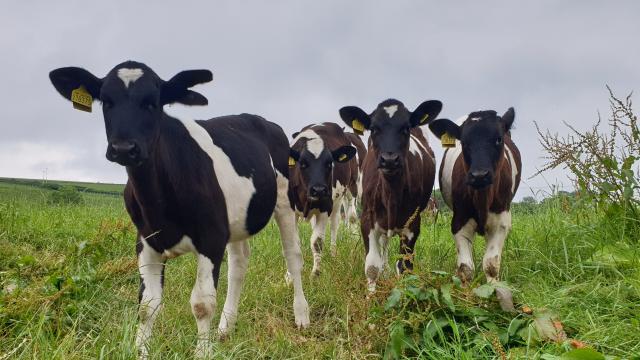
What counts as livestock movement?
A movement occurs any time livestock are moved on or off a holding, including:
- Between farms or holdings
- To or from markets, showgrounds, or slaughterhouses
- Imports and exports
Recording and Reporting Movements
Ensure cattle have:
You must:
- Update your holding register and animal passport within 36 hours
- Record date of movement before livestock leaves the holding
- Report the movement to BCMS within 3 days
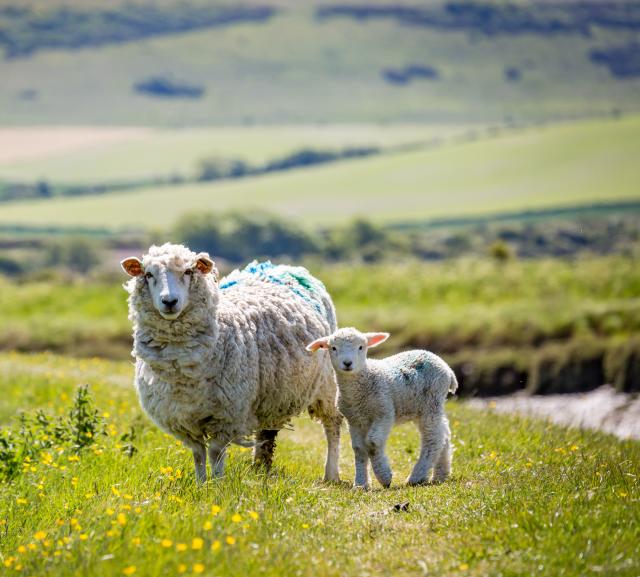
Recording and Reporting Movements
- Ensure sheep and goats are correctly tagged
- Report the movement to the Livestock Information Service (LIS)
- Record the movement in your holding register.
You must report:
- The address the animals are sent to or from
- The details of the haulier moving the animals
- The number of animals moved
- The animals’ official identification numbers (there are some exemptions to this rule)
For information on when you do not have to report and record movements, please see the links below:
Need more help?
LIS Email: support@livestockinformation.org.uk. Telephone: 03300 416 577
APHA Email: customer.registration@apha.gov.uk.
Telephone (Defra rural services helpline): 03000 200 301
Legal requirements
For information on the legal requirements of moving livestock, you should read and follow the conditions of the general license for cattle and sheep and goat movement in England.
The RPA have created useful video guides for "What to expect from a cattle identification visit" and "What to expect from a sheep and goat visit", which you can view on their YouTube channel.
On 15 October, Defra confirmed that more than 5,000 farmers with Countryside Stewardship Mid Tier (CS MT) agreements set to expire this year will be offered a one-year extension to their current agreement.
Countryside Stewardship gives farmers and land managers the opportunity to be paid for environmental work – such as planting wildflower margins that boost pollinators and managing hedgerows to create vital habitats for birds and small mammals – alongside sustainable food production.
With agreements set to expire on 31 December this year, one-year extensions are being offered while the government develops the reformed Sustainable Farming Incentive for 2026, refreshes the Environmental Improvement Plan and rolls out the new Countryside Stewardship Higher Tier scheme, as part of Defra’s plan to give farmers long term strategic certainty.
The one-off investment of up to £70m from within existing budgets ensures more than 5,000 farmers, foresters and landowners have the support they need to continue their vital role in sustainable food production and nature’s recovery. It reflects Defra’s commitment to working with the sector to build a stronger, more profitable farming future.
Plans for the Sustainable Farming Incentive are currently being reviewed to ensure the available funding for that scheme is distributed efficiently and fairly. The government will publish information on the next iteration of the scheme in due course.
Investing in nature through the government’s Plan for Change is central to securing Britain’s future economic growth, developing a sustainable, resilient and profitable farming sector, and ensuring long-term food security.
The Rural Payments Agency (RPA) will write to eligible farmers with details about their extension offer. The letter will contain details of how they accept their extension and the deadline they need to meet for it to be processed.
For more information on CS MT, please visit the Farming blog.
You can now pay Environment Agency permit application charges online with GOV.UK Pay

GOV.UK Pay is a secure online payment service used across public sector organisations like local councils, Police, and the NHS. It meets Payment Card Industry Data Security Standards (PCI DSS), which means it uses, sends and stores your data securely.
With GOV.UK Pay you can:
- Pay by card, Apple Pay or Google Pay
- Get an automatic email receipt
- Make it easier for us to track your payment so we can start work on your application sooner.
How to pay an application charge with GOV.UK Pay
You can find a payment link in part F1 of our EPR permit application forms: Application for an environmental permit (charges and declarations): part F1 - GOV.UK.
Whilst Water Resources application forms are still being updated, you can use this payment link for Water Resources application charges: www.gov.uk/payments/permitting-applications-water-resources/permitting-application-payment-water-resources
To make a payment, you will need to create your own reference number. Your reference number must follow this format: PSCAPPWRXXXXXYYY.
- It should begin with one of following codes to indicate the permit type:
- PSCAPPWR for the Water Resources
- PSCWQ for Water Quality,
- PSCWASTE for Waste,
- PSCINST for Installations
- The reference number should include the first five letters of the company name (replacing the X’s in the example above)
- a unique numerical identifier of your choosing (replacing the Y’s in the example reference number).
Email the reference number and the payment date to the EA so they can track your payment.
At a beef cattle enterprise in Lincolnshire, a routine farm inspection from the Environment Agency (EA) identified issues with the storage of the farm’s fuel oil, the cattle farmyard manure (FYM), and the silage. This meant that the farm was non-compliant with a number of silage, slurry and agricultural fuel oil (SSAFO) Regulations.
Fuel oil
One of the two plastic fuel oil storage tanks was SSAFO non-compliant as the delivery hose was not within the bund. The EA Officer advised to either bring the tank into compliance with an external bund or replace completely with a new compliant one. The farmer opted to add an external breeze block bund, which had the dual benefit of keeping costs down and utilising the existing tank.
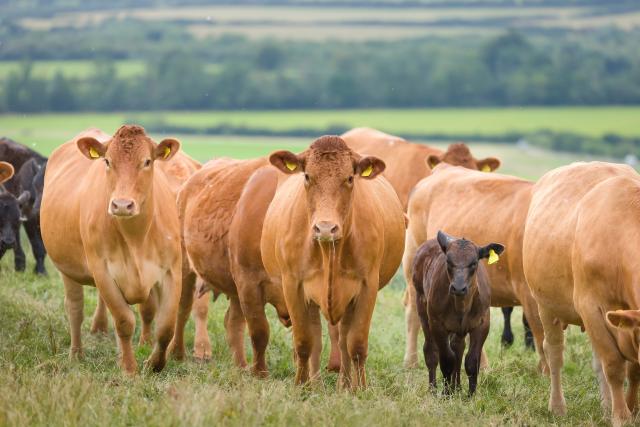
Cattle farmyard manure
The cattle farmyard manure (FYM) was stored in the yard on a concrete pad with earth bank sides, but the slurry runoff was not contained or collected. To tackle the issue, the EA Officer asked the farmer to stop using the store and to produce a plan for proposed remedial action.
The farmer chose to store the manure in compliant temporary field heaps going forward, in line with the Nutrient Vulnerable Zones (NVZ) Regulations.
Silage clamps
Two large non-compliant silage clamps had no perimeter drainage or effluent collection. To resolve the issues, the farmer will need to invest in a significant amount of concrete. By openly communicating with the EA Officer, the farmer was able to agree to not use the clamps again once the current crop expires. This has given the farmer the necessary time to make plans, with a view to laying down concrete to create a new compliant storage area.

Support from Catchment Sensitive Farming (CSF)
The EA Officer also referred the farmer to Catchment Sensitive Farming (CSF) for further support and advice. There were no grants available to help with the concreting work for the new silage clamps, but the farm went forward with a grant to roof a large cattle outdoor loafing area. As well as reducing straw costs, this should also enhance the yard’s clean/dirty water separation significantly and improve the farm’s environmental impact.
Working with the regulators to agree a pragmatic way forward
The farmer was quite hesitant to spend the significant amount of money required to bring issues into compliance, but the EA Officer’s positive relationship with the farmer means the actions are being completed bit-by-bit and improvements are being achieved, which are helping to reduce environmental harms and bring the farm back into compliance.
If you hold a summer water abstraction licence (authorising abstraction wholly within the months of April to October), the Environment Agency will make actual abstraction return forms available to you from 31 October. You then have 28 days to send your readings to the Environment Agency.

In readiness, you can report your return online by registering with the Environment Agency’s online digital Service at: https://www.gov.uk/guidance/manage-your-water-abstraction-or-impoundment-licences-online.
- If you already have an online account and have applied for and received a new licence (including a renewal of a licence which previously expired) since you last submitted a return, you will need to link the new licence to your account. You can do this by accessing your account and selecting the ‘add licence’ option.
- If you had a licence which expired during the period 1 November 2024 to 31 October 2025 (inclusive), a return may still be requested. To report the return, you will need to request a paper return form from the Environment Agency rather than using your online account. You can contact the Agency on 03708 506 506 or at enquiries@environment-agency.gov.uk
- If you have a Two-Part Tariff (TPT) annual charge arrangement and do not submit a return your second part, the annual charge will be calculated using the authorised quantity specified by your licence and the full annual charge will be payable even if you didn’t abstract any water (a nil return can be reported to the Environment Agency). A TPT Charge Arrangement can, subject to agreement by the Environment Agency, be applied to licences authorising abstraction for spray or trickle irrigation. If you are unsure whether you have a TPT charge arrangement, please contact the Environment Agency quoting your licence number in all correspondence at WR_Systems_Team@environment-agency.gov.uk.
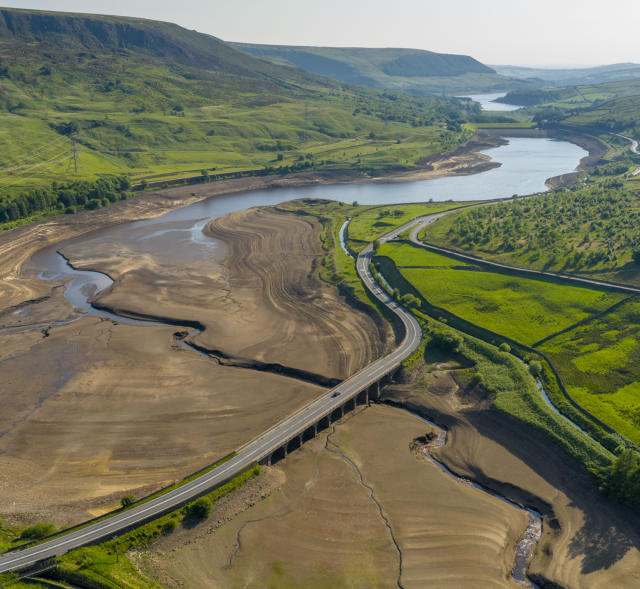
Following this year’s exceptionally dry summer, the Environment Agency has utilised the Water Abstraction e-Alert (WAA) system, part of the Managing Water Abstraction Service (MWAS) on GOV.UK, to issue notices. These include Stop and Reduce notices and Warnings that inform licence holders of potential restrictions, as well as Resume notices when conditions improve. These alerts help ensure water is accessible when available and protect the environment during periods of scarcity.
MWAS is also the most convenient way to submit your abstraction returns. It allows licence holders to delegate access to others to submit returns on their behalf. MWAS provides a summary of your licence information, optimised for mobile viewing. Please refer to your original licence documents for full details on licence conditions.
It is essential to keep your contact information up to date.
To register your abstraction licence, visit the Managing Water Abstraction Service (MWAS). For assistance or queries, contact Water_abstractiondigital@environment-agency.gov.uk.
If you are already registered, please log in and confirm your contact details are current.
Have your say in reservoir reform programme proposals
Reservoirs play a vital role in safeguarding water supply by storing water to ensure water’s available all year round. They are also used for flood risk management, irrigation and recreation purposes.
Following the publication of the Independent Reservoir Safety Review Report, the UK and Welsh Governments are delivering the Reservoir Safety Reform Programme.
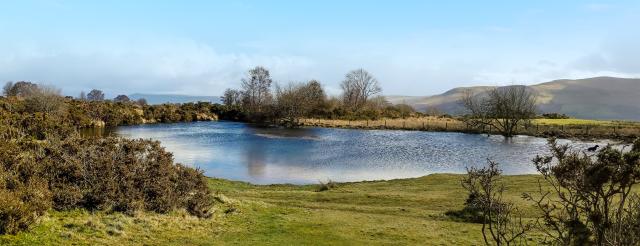
This programme of work will look at the recommended actions outlined in the report to ensure reservoirs and their associated structures are constructed, operated, and maintained in a safe manner. The programme is being delivered in a phased way over several years, by the Environment Agency, Defra, Welsh Government and Natural Resources Wales.
A winter consultation will be seeking views on options for updating the policy on reservoir safety. The themes will include:
- improved hazard classification
- and safety management system for reservoirs,
- clearer responsibilities for reservoir owners,
- changes to the structure and responsibilities of engineer panels, and
- new responsibilities for regulators.
A second consultation in 2026 will seek the views and thoughts on the reservoir safety management process and proposed legislation regime.
Water Resources Prospects Report expected winter 2025
The Environment Agency is preparing a Winter Refill Prospects report for the impacts of a dry autumn/winter and the prospects for spring 2026. This is expected to be published later in the year, on the Farming Advice Service website.
Sign up at Reservoir Safety Reform Programme for the most up to date news and the link to the consultation in the winter.

Defra regularly updates the Farming blog. Please subscribe to the blog to ensure you receive all the latest news.
Extreme weather guidance from the RPA
When extreme weather means that you cannot temporarily manage your agreement according to the Countryside Stewardship (CS) or Environmental Stewardship (ES) option requirements, you can request a minor and temporary adjustment to those requirements. You need to complete the Minor and temporary adjustment (MTA) form.
Once you have filled in the form you can either post the form, or email a scanned copy to it to ruralpayments@defra.gov.uk, including the following in the subject title:
- ‘Adjustment request’
- The scheme you need to request an adjustment for
- Your agreement or Single Business Identifier (SBI) number
You can read the guidance here: Extreme weather guidance for farmers and land managers.
Cattle TB vaccine trials move to the next stage
Field trials for a cattle vaccine and a companion skin test for bovine tuberculosis (bTB) have moved to stage three.
The skin test – Detect Infected among Vaccinated Animals (DIVA) – can tell if cattle are infected with bTB or just protected by the vaccine.
This phase will test the new skin test on more farms to check how well it works and improve it further.
At least 750 cattle across 10 farms will take part in low-risk TB areas across England and Wales. All cattle will receive the vaccine and companion DIVA skin test. The trials are due to be completed in 2026.
Why this matters
The completion of Phase 1 and 2 was an important milestone in ensuring the UK Government remains on track to deliver a bTB vaccine that farmers can use.
The Animal and Plant Health Agency will use the results to get official approval for both the vaccine and skin test. If approved, this will save thousands of cattle every year that would have been culled to prevent the spread of the bTB disease.
Find out more about the bTB cattle vaccination programme on the TB Hub.
Over 8,800 applicants offered Farming Equipment and Technology Fund (FETF) funding
Over 8,800 applicants have successfully secured funding through this year’s Farming Equipment and Technology Fund (FETF). Grant Funding Agreements (GFAs) have now been sent. Together, the successful offers are worth more than £68.4 million.
Funding will help thousands of farmers, horticulturalists, forestry owners and associated contractors invest in new machinery – from autonomous robots that plant seeds with precision to slurry separator systems that reduce both waste and costs.
As FETF is a competitive fund, those whose applications weren’t selected have received an email explaining why.
Defra encourage successful applicants to read their agreements carefully to make sure they understand the terms, conditions, and claim deadline of midday on 31 March 2026.
Read more about FETF.
RABI partnership offering farmers and growers free 2-year TIAH membership
The Royal Agricultural Benevolent Institution (RABI) has partnered with The Institute for Agriculture and Horticulture (TIAH) to offer a free 2-year TIAH membership. Through this membership, farmers and growers can develop their expertise and plan more effectively for the future using TIAH’s resources and training.
Farming Innovation Programme (FIP) competitions open now
On the 13 October 2025, the latest round of the Feasibility Studies competition opened through the Farming Innovation Programme (FIP).
In addition, the Small Research & Development Partnerships competition remains open until 5 November.
These competitions offer research groups alongside farmers, growers and foresters the chance to test and develop ideas that could improve productivity, sustainability and resilience in agriculture.
In total, £12.6 million will be split between:
- Feasibility Studies (£4.8 million)
- Small Research & Development Partnerships (£7.8 million)
This is the fourth round for each of the competitions, delivered in partnership with Innovate UK. These latest competitions are part of the government’s commitment, set out in the Industrial Strategy, to allocate at least £200 million for the Farming Innovation Programme up to 2030.
Read more about the FIP competitions.
Making Tax Digital for Income Tax
To ensure a smooth transition, HMRC is currently conducting a testing programme to support customers and accountants to voluntarily sign-up and become familiar with the new system before moving to Making Tax Digital (MTD) from 6 April 2026.
To help customers get ready, HMRC has published a step-by-step guide on preparing for and using MTD for Income Tax and also has a series of videos and webinars.
New video series: What to expect from an RPA visit
The RPA has launched a new series of videos to provide farmers with helpful information about what to expect from Field Officer visits. The series includes a video about sheep and goat identification visits and a cattle identification visit.
AgriScale pilot to drive UK agri-tech manufacturing forward
The government is committed to investing in cutting-edge technologies to help unlock the full potential of farming.
At last month’s World Agri-Tech Innovation Summit, Defra Minister Dame Angela Eagle unveiled Innovate UK's new 'AgriScale' pilot. This new pilot will support five agri-tech businesses to tackle manufacturing challenges, accelerating promising technologies for the agricultural industry.
Scaling up UK agri-tech businesses will help to strengthen our advanced manufacturing capabilities, grow a globally competitive Agri-Tech manufacturing base, and build greater economic resilience.
“AgriScale plays a pivotal role in advancing the UK’s leadership in frontier Agri-Tech industries” said Andy Cureton, Director of Agri-Food Systems at Innovate UK.
Backed by the Modern Industrial Strategy, it draws on the successful scale-up model in the automative sector, bringing this know-how to boost agricultural technology innovation.
£11m collected from water company fines invested into cleaning our water
Last year, the money collected from fines on water companies between April 2022 and October 2023 was invested into the £11 million Water Restoration Fund. Grants were made available to support local projects that restore and protect rivers, lakes and seas. 51 projects have now secured funding.
There were 2 types of grants:
- Development grants ranging from £75,000 to £250,000, designed to build capability
- Delivery grants ranging from £500,000 to £2 million, designed to accelerate or support projects that had already been planned
These projects will bring rivers and landscapes back to life by using nature-based solutions. That could mean re-meandering rivers so they flow more naturally, restoring wetlands and other water-dependent habitats, or removing barriers so that fish can move freely.
Communities benefit when water companies are held to account, with better access to blue and green spaces. Alongside this, some projects are testing out new technology to help them go further: using tools like data analysis, artificial intelligence, mapping software and remote sensing to guide and measure their work.
Find out more about the Water Restoration Fund in this Farming blog.
New Defra Podcast: Soil health and profit: lessons from mixed, arable and upland farms
In this episode of the Defra Farming podcast, guest host Neil Pickard, an independent farming adviser with more than 45 years’ experience in livestock and mixed farming, talks with Stuart Johnson, Soil Farmer of the Year 2023, and Kyle Richardville from Understanding Ag.
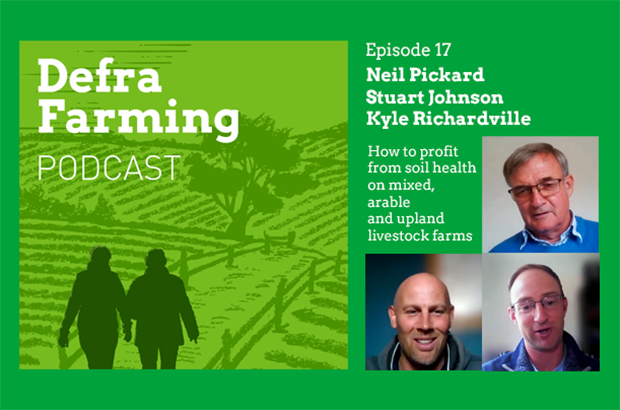
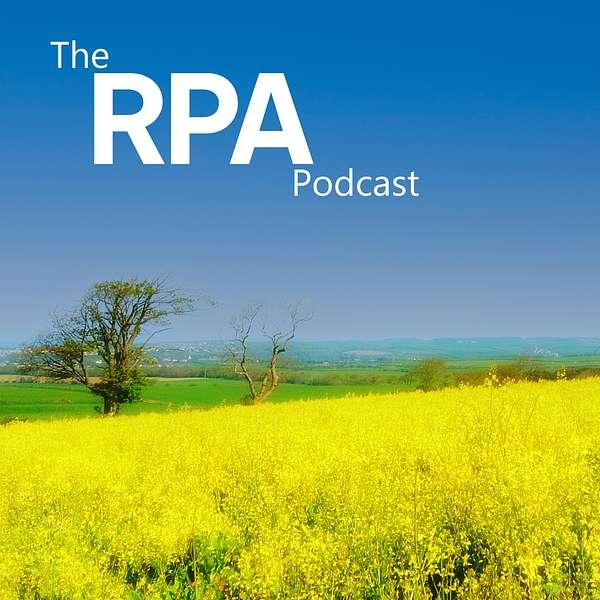
Rural Payments Agency Blog
To stay up to date with the latest information and updates from the Rural Payments Agency (RPA), sign up to the RPA Blog.
You can also listen to the RPA Podcast, which has been launched to help farmers, landowners and rural communities keep up to date with the latest news from the RPA. You can also follow the RPA on social media:
- X @ruralpay
- Facebook: facebook.com/RuralPaymentsAgency
- YouTube: Rural Payments Agency
- Instagram: ruralpay.
Stay up to date the Sustainable Farming Incentive (SFI) blog posts here.

Free and confidential advice
The FAS is funded by the Department for Environment, Food and Rural Affairs (Defra). We provide free, confidential advice to help farmers and land managers in England understand and meet the legal requirements in English law around certain farming activities to protect people, livestock and the environment. We update the farming sector on relevant government farming policy that is applicable in England and on the actions that can be taken to help farmers comply with the relevant regulations. Our newsletter also provides articles on topics that are complementary to farming regulation, such as practices that benefit the wider environment and wellbeing support.
Our website hosts our previous newsletters, as well as technical articles and webinars that cover various topics in more detail.
Contacting the advice line: Farmers requiring telephone advice can contact the FAS technical advice line on 03000 200 301, Monday to Friday, between 08:30 and 17:00. The Rural Services Helpline provides a single number for all FAS, Rural Payments Agency (RPA), Animal and Plant Health Agency, Natural England and Forestry enquiries.
You can also email enquiries to advice@farmingadviceservice.org.uk. Our helpline team aims to respond to all telephone and email enquiries within one working day.
Stay up to date with us
Subscribe to our free monthly newsletter
If you don’t already receive our monthly FAS newsletter, please visit farmingadviceservice.org.uk/signup and enter your email address into the newsletter sign-up box.
In line with data protection regulations, such as the General Data Protection Regulation (GDPR) and the UK Data Protection Act 2018, the FAS has updated its privacy policy to explain how your data is kept safe. To view the policy, please visit www.farmingadviceservice.org.uk/events/privacy/.